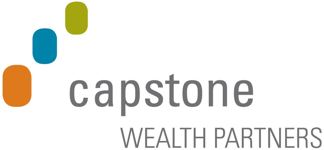A Good Solution? Security Concerns on Financial Aid Applications
By Joe Messinger, CFP®
August 18, 2017
 Every year college students and their families file financial aid applications. The FAFSA or Free Application for Federal Student Aid is the tool used to apply. The Department of Education and the IRS have been struggling recently with security concerns.
Every year college students and their families file financial aid applications. The FAFSA or Free Application for Federal Student Aid is the tool used to apply. The Department of Education and the IRS have been struggling recently with security concerns.
In April, we talked about the Data Retrieval Tool (DRT) and tax fraud scammers who hacked the system. The DRT was shut down while the government figured out a solution. We’re not entirely happy with what they have proposed.
Here is a short history lesson…
The online FAFSA tool collects all the financial data for parents and students to determine their “need” for financial aid. Many mistakes were made when people typed in the numbers themselves.
We can all relate to the confusing accounting terminology used on income taxes. Plus, people simply typed in the numbers incorrectly.
So, the government had a great idea. Why not have the online FAFSA access your online IRS data and fill in the blanks for you? Easy. The DRT was born.
Well, hackers are pretty bright and shifty people. The DRT system was not hack proof, and suddenly income tax information was being stolen so fake tax filings could be created. When it was discovered, the DRT was shut down in March 2017.
This week they have announced their solution.
The DRT will pull figures from your IRS filing. However, the numbers will not be visible to you. In those fields, it will say “transferred from the IRS.” The actual numbers will be encrypted.
We are left unable to make sure those figures are correct. What if they are wrong? We won’t be able to tell, and we won’t be able to change them.
The options become using your W-2s and tax returns to fill in the information yourself or blindly trusted the figures pulled in by the DRT are correct. The original purpose for the DRT, preventing mistakes, seems to have entered a gray area.
If errors are made by the IRS, will they be responsible for fixing them? How will families even know there are mistakes?! This solution does not seem to be a good resolution.
Some final FAFSA reminders:
- The FAFSA goes live for the 2018/2019 school year on October 1st.
- As always, we recommend EVERYONE completes this filing by November 1st.
- Freshmen are not the only ones who need to file financial aid applications. All college students should file every year.
- You should file even if you think you are not going to be eligible for need based financial aid. Future circumstances may change and having a filing will simplify the change process. Some colleges also require you to submit the FAFSA to receive merit based scholarships.
Filing the FAFSA is important.
According to NerdWallet in 2014, over $92 million in Pell Grant money was left on the table in Ohio because 48% of high school graduates did not file.
At this point, our guidance would be to trust the DRT. Placing the onus on the government to get the figures correct is better than having to defend yourself if you are the one making the error. Not an ideal solution.
Hopefully, they’ll continue to work on this problem and propose something with better security and more transparency for families.


